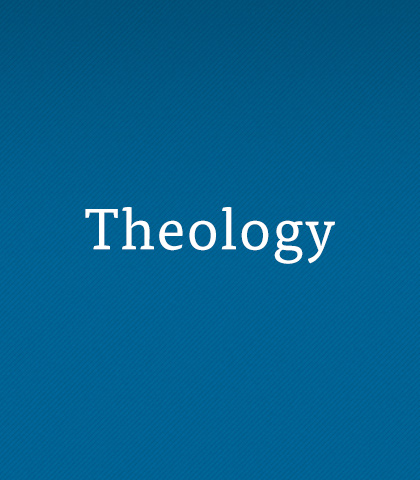Mind Over Matter: The Heresy of Gnosticism both Then and Now
Take this simple true of false quiz. If you answered “true” to any of these questions, you've been deceived by the ancient heresy of Gnosticism.

What words come to mind when you hear the term theology? Dry…Dreary…Doubtful…DULL? You’re not alone.
Too often we don’t realize that theology—thinking about God—is an intimate part of our everyday lives, rather than something that takes place in ivory towers crowded with bearded men crouched over dusty books. We each engage in theology because we each have a set of beliefs about God. But rather than being content with our ideas about God as they now stand, we should each have a desire to know God better than we do today. If you’ve got that desire, then you’re ready to do theology!
Let these resources point the way to a faith more deeply connected with who God actually says He is.
Take this simple true of false quiz. If you answered “true” to any of these questions, you've been deceived by the ancient heresy of Gnosticism.
Several principles are worth remembering. First, no one person has all the truth. Second, no single church owns exclusive rights to your mind. Third, no specific interpretation is correct just because a gifted teacher says so.
God sees and knows our shortcomings. And that is why we daily need His undeserved favour—grace. In spite of us, His infinite love is unconditional. Our relationship to God is not based on our perfection, but on Christ’s.
God created us and gave us principles to live by in His Word. Ignoring Him and these truths as Marxism does only results in death and destruction. This man-made ideology has always failed to bring about good in our world and always will.
From a pluralist’s standpoint, the exclusivity of Jesus as the only way of salvation is intolerant. It assumes the existence of absolute truth, that it may be known, and it delegitimizes all competing religious claims.
The term worry is derived from the old German word wurgen, which means "to choke." Somehow, by extension, the word came to denote "mental strangulation," and, finally, to describe the condition of being harassed with anxiety.
To summarize Scripture, the issue is not that possessions are wrong. It’s our attitude toward them. It is the LOVE of money and things that Scripture condemns. Anything we trust in besides God is an idol.
Does this mean that since a Christian who commits suicide won’t go to hell we can relax and not worry so much about it? No. We need to understand the factors, especially depression, which can lead to suicide even for Christians.
There is a difference between opinions and fact/truth claims. When someone claims Jesus is not God, that’s an opinion. When Jesus says that He is God, that is a fact/truth claim. And the truth of His statement is based on objective reality.
As Christians, we believe there are absolute values and morals because God who created this world has designed it to work according to His attributes of goodness and love. It malfunctions when people do not live according to His will.
This is to test
This is to test an ad block custom module.